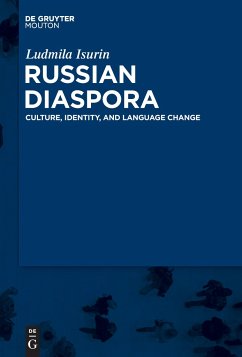This book offers an interdisciplinary perspective on one of the largest immigrant groups in the West. Most of the extant books on the subject of Russian immigration are written from a sociological or socio-linguistic perspective. They are focused on strictly Jewish immigration or cast the immigrant community as "Russian," ignoring the reality of two distinct ethnic groups. In addition, none of the extant literature or books is based on an empirical, controlled-study of a numerically large group of immigrants. Finally, few if any published monographs make use of qualitative as well as quantitative methods of analysis or the same theoretical framework to explore changes in culture, identity, and language.
The proposed book has several features distinguishing it from the currently available scholarship. "Russian Diaspora" examines two distinct ethnic groups, relies on empirical data based on sizable groups in three countries, and looks into three elements of acculturation (culture, identity, and language). Of the 214 people who participated in the present study, 174 are Russian immigrants who had resided in the United States, Germany, and Israel between ten and thirty years. In addition to offering a combination of quantitative and qualitative analyses, the book adopts sociological, socio-linguistic and psycho-linguistic methods of analysis.
<
The proposed book has several features distinguishing it from the currently available scholarship. "Russian Diaspora" examines two distinct ethnic groups, relies on empirical data based on sizable groups in three countries, and looks into three elements of acculturation (culture, identity, and language). Of the 214 people who participated in the present study, 174 are Russian immigrants who had resided in the United States, Germany, and Israel between ten and thirty years. In addition to offering a combination of quantitative and qualitative analyses, the book adopts sociological, socio-linguistic and psycho-linguistic methods of analysis.
<

